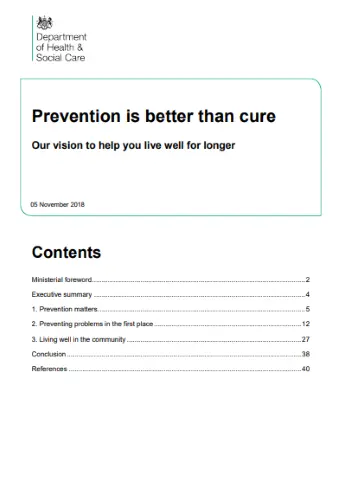We were delighted to learn this week that the Department of Health and Social Care (DHSC) has commissioned Ipsos to run an Infant Feeding Survey in 2023.
The Institute of Health Visiting, alongside many organisations and charities working to support breastfeeding and responsive infant feeding, has been calling for the reinstatement of a national Infant Feeding Survey since it was stopped in 2010. Previously, the Infant Feeding Survey (IFS) was conducted every five years between 1975 and 2010. Valuable data on infant feeding trends were collected in the eight IFS reports that were published during this time.
Following what has been described as ‘an extensive period of development’, on Monday 9 October, DHSC announced that the Infant Feeding Survey 2023 (IFS) for England will begin in mid-October. The reinstatement of the IFS is good news – the lack of evidence on infant feeding practices over the last 13 years has significantly limited our ability to track progress on the prevalence and duration of breastfeeding, and this has hampered policy and practice developments in this area. The main aim of the survey is to provide estimates on the incidence, prevalence, and duration of breastfeeding and other feeding practices adopted by mothers in the first year after their baby is born, as well as wider influences on feeding choices.
This will be the first IFS since the survey was last conducted in 2010 and will provide valuable information on infant feeding behaviours and related factors including:
- internationally comparable data on prevalence and duration of breastfeeding
- the use of foods and drinks other than breastmilk in infancy
- infant feeding help and information received by mothers
- information about bottle and breastfeeding in public places
- parental leave, return to work, working hours and facilities provided for expressing and storing breastmilk, or breastfeeding at work
DHSC and the Office for Health Improvement and Disparities (OHID) have started sharing information on the survey to raise awareness among potential survey participants. This includes the placement of posters in maternity units and postnatal settings, and posts on social media channels. Through these channels, people will be directed to the IFS website where they can find further information on the IFS and opt out from taking part, if required.
Gail Barker, iHV Expert Adviser for Infant Feeding said:
“The IFS 2023 is a really exciting step forward. It will allow us to gain a current viewpoint on infant feeding practices, based on today’s parents, to help us influence and inform health visiting practice to better meet families’ needs. It is really positive to think about the opportunities this will provide for us in better understanding the influences on parents’ infant feeding decisions – the opportunity to consider infant feeding through the lens of today’s modern society with all of its digital influences, the post-COVID impact, the way we work, and the makeup of families in 2023.
“The survey findings will also provide valuable information on the extent of commercial influences and the marketing of other food and drinks on breastfeeding decisions, alongside the all-important service provision for families. These will all influence how we move forward with our Family Hubs and improve support for families.”
Who will take part in the survey?
DHSC and Ipsos will be contacting more than 20,000 mothers who have recently given birth to take part in this survey. Only individuals who have been selected for the IFS and receive an invitation letter will be able to participate in the survey. Ipsos will only be contacting a random selection of mothers who gave birth in Summer 2023, so not all mothers will be receiving a survey.
What does the IFS involve?
Individuals who have been selected to take part in the IFS will receive an invitation to complete a questionnaire that will be sent to them when their baby is around 9-12-weeks-old. If they complete the first questionnaire, and consent to further contact, they will receive a second questionnaire when their baby is around 4-6 months and a third at around 8-10 months after the birth.
Ipsos will start sending the IFS out in mid-October 2023. If anyone does not want to be included in the study, or receive a survey, they can complete the form on the opting out of the survey page.
How can you help?
Please promote the survey where you work and encourage women to complete it if selected.
You can find out more about the Infant Feeding Survey 2023 on the IFS website.



